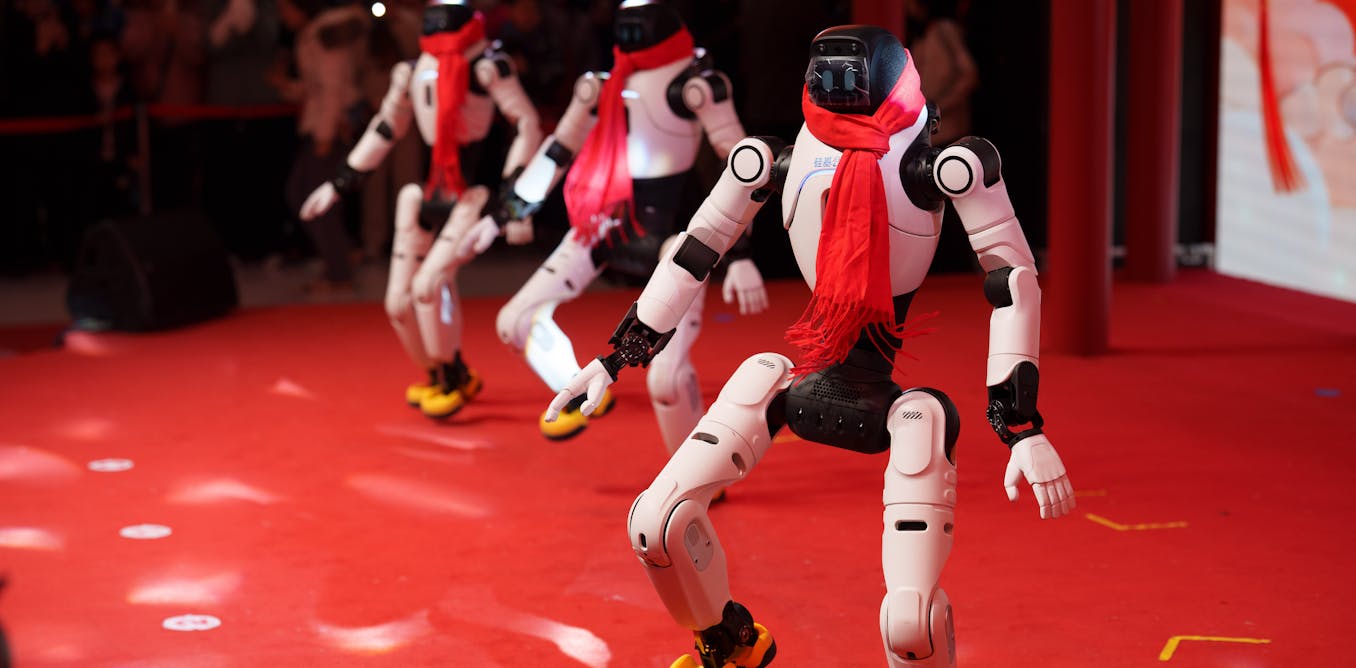According to Merriam-Webster, America’s oldest dictionary, “authentic” was the top word of 2023. The dictionary’s publisher also declared the meaning of the word “fake” was becoming increasingly blurred.
In an age where AI is becoming increasingly prevalent, the concept of authenticity has taken on new significance, particularly for Gen Z. Born between the mid-1990s and early 2010s, this generation has grown up in a digital age where social media and online personas are part of everyday life – as are misinformation and disinformation. So Gen Z has had to develop an acute ability to discern what is genuine from what is artificial.
Immersed in technology since birth, authenticity for this generation is not just a desirable trait, it’s a necessity. Gen Z has witnessed first-hand the ease with which false information can spread – as evidenced by high-profile conspiracy theory cases, events like the Southport riots, and the rise in the use of deepfakes to misrepresent people.
As a result, Gen Z has developed a well-honed scepticism towards anything that appears too polished, too perfect, too contrived – a skill that will serve them well as AI-generated content becomes increasingly sophisticated and harder to distinguish from reality.
Looking for something good? Cut through the noise with a carefully curated selection of the latest releases, live events and exhibitions, straight to your inbox every fortnight, on Fridays. Sign up here.
In 2021, a Gen Z insights report from Ernst & Young showed that 92% of this generation value being “authentic and true to oneself” as important. In fact, they crave authenticity in all aspects of their lives.
Compared with Millennials, a larger proportion of Gen Z say they base their job choices on their personal values and ethics. Many describe wanting genuine relationships, authentic emotional connections and transparency in all forms of communication.
Another study found that 90% of Gen Z consumers believe authenticity is crucial when deciding which brands to support. They seek out genuine connections and experiences, both online and offline, and respond to brands that appear to echo these concerns.
In research undertaken with my colleague Sukanya Sen Gupta, we asked Royal Holloway School of Business & Management students to engage in an artistic activity of “future self-portraiture” – an exercise that encourages participants to connect with their authentic selves.
As a tool for self-discovery and self-expression, they were asked to create an artistic image in which they imagined themselves when they were older. We found that by engaging in introspection and self-reflection through art, students were able to identify and express their true thoughts, feelings and values.
Leading the way for Gen Z
Research suggests that for teachers, adapting the curriculum and teaching methods to prioritise authenticity is essential to preparing Gen Z for success in an AI-driven world.
Traditional classroom settings alone are no longer sufficient; innovative, experiential approaches that allow students to become critical thinkers and embrace individuality are required to develop well-rounded professionals. Engaging students in teaching methods that incorporate real-world activities – such as conducting market research for local businesses, or managing a virtual investment portfolio using real-time market data – helps foster authenticity within the learning environment.
By working on real-world challenges and making thoughtful contributions, students not only gain practical skills, they experience the satisfaction of creating something tangible that has an impact. In other words, a bridging of theory and practice that has lasting effects – a stark contrast to the often fleeting nature of digital interactions.
When we asked students to create a future self-portrait as part of our research, they were told they could do this however they pleased – using pencils, paint, fabrics or even flowers. We offered the students a loose, creative process that was not overly prescribed.
The participants expressed joy in harking back to their past to help identify their future-self. In this part of the exercise, nostalgia played its part in generating positivity about the future.
By exploring personal histories, family stories and cultural roots, a person can gain a deeper understanding of who they are and what they value. This process of self-discovery can prove particularly powerful now, at a time when AI and algorithms are often shaping our experiences and interactions. We believe this new-found self-awareness can help Gen Z navigate the complexities of an AI-driven world with greater confidence and clarity.
In addition to self-portraiture, we have found that employing personal branding exercises can help students develop their unique identity. Encouraging students to create personal mission statements, identify core values and develop genuine social media profiles – rather than the “Insta-just-for-show” variety – can help them establish who they really are. By embracing their unique qualities and perspectives, young people are empowered to stand out in a world where AI-generated content threatens to make everything seem generic.
It appears that over time, Gen Z has grown tired of upholding an online persona that deviates from their true personality. Recent findings suggest the only way to market effectively to Gen Z on social media is for brands to come up with more thoughtful messaging that aligns with their target audience.
Similarly, as AI-generated content and fake news continue to permeate daily life, it is crucial that we prioritise the value of authenticity in education, especially for younger generations who are particularly impressionable.
By making this a guiding principle in education, teachers and lecturers are well positioned to empower Gen Z to create a future where genuine human connections and experiences continue to thrive alongside technological advancements. When the line between reality and artifice is not always easy to distinguish, nurturing the importance of authenticity could be the most vital responsibility for those tasked with shaping the next generation.

The post “why authenticity and connection are key to thriving in an AI-driven world” by Lucy Gill-Simmen, Vice Dean for Education & Student Experience, Royal Holloway University of London was published on 08/05/2024 by theconversation.com


























